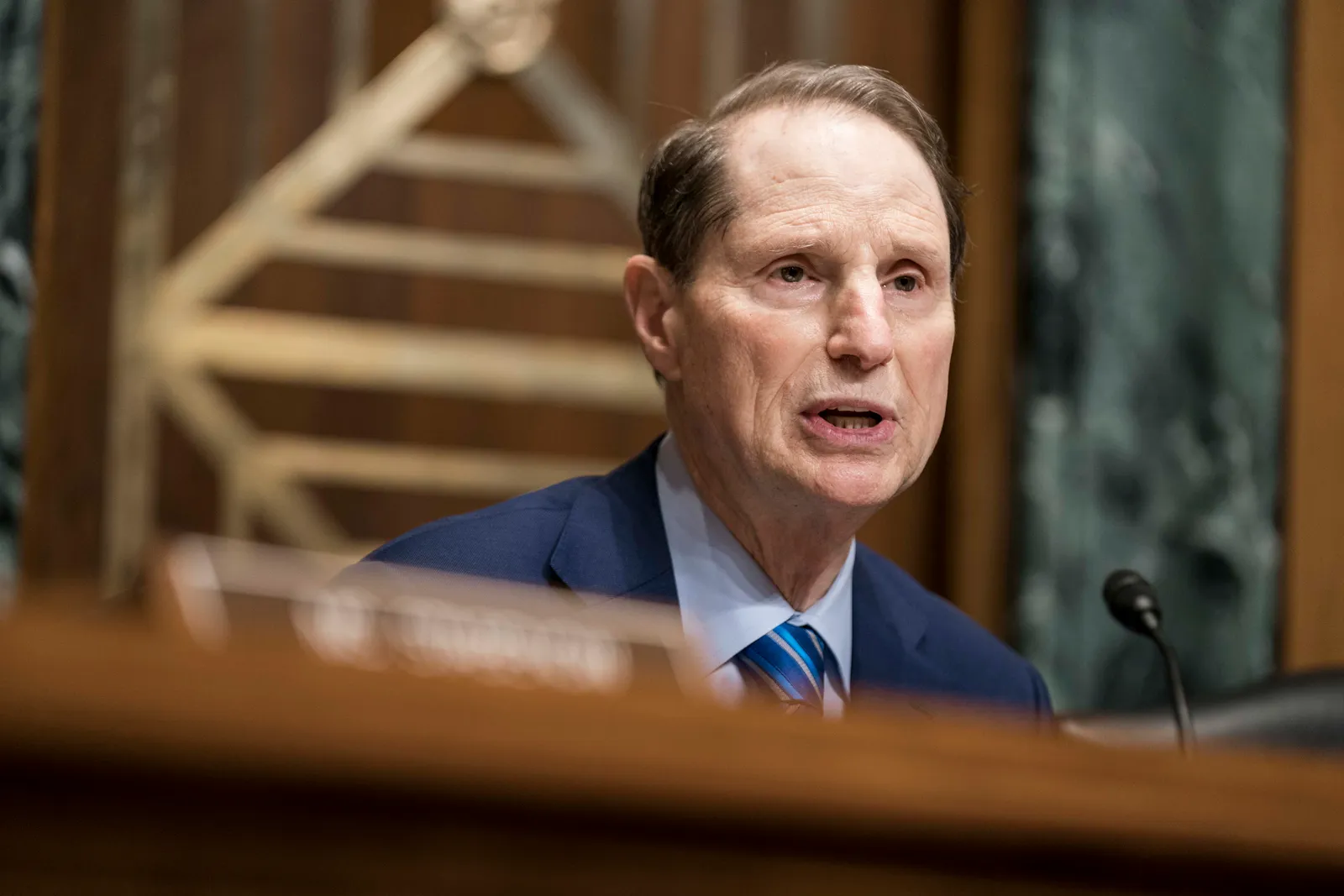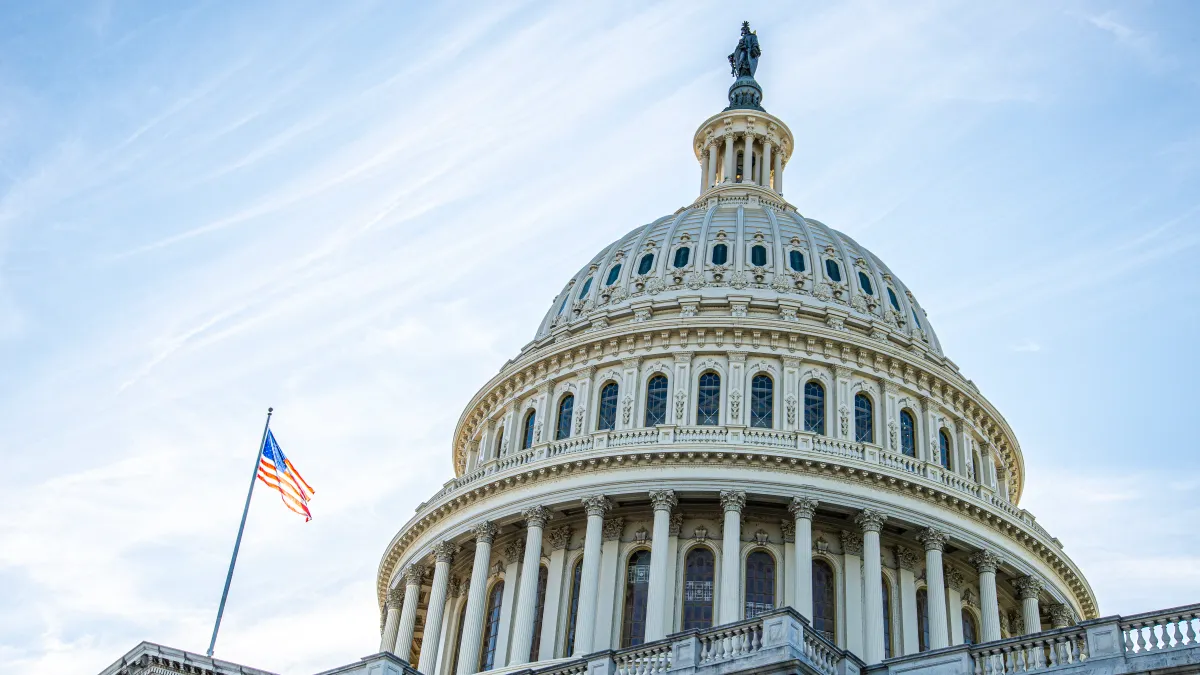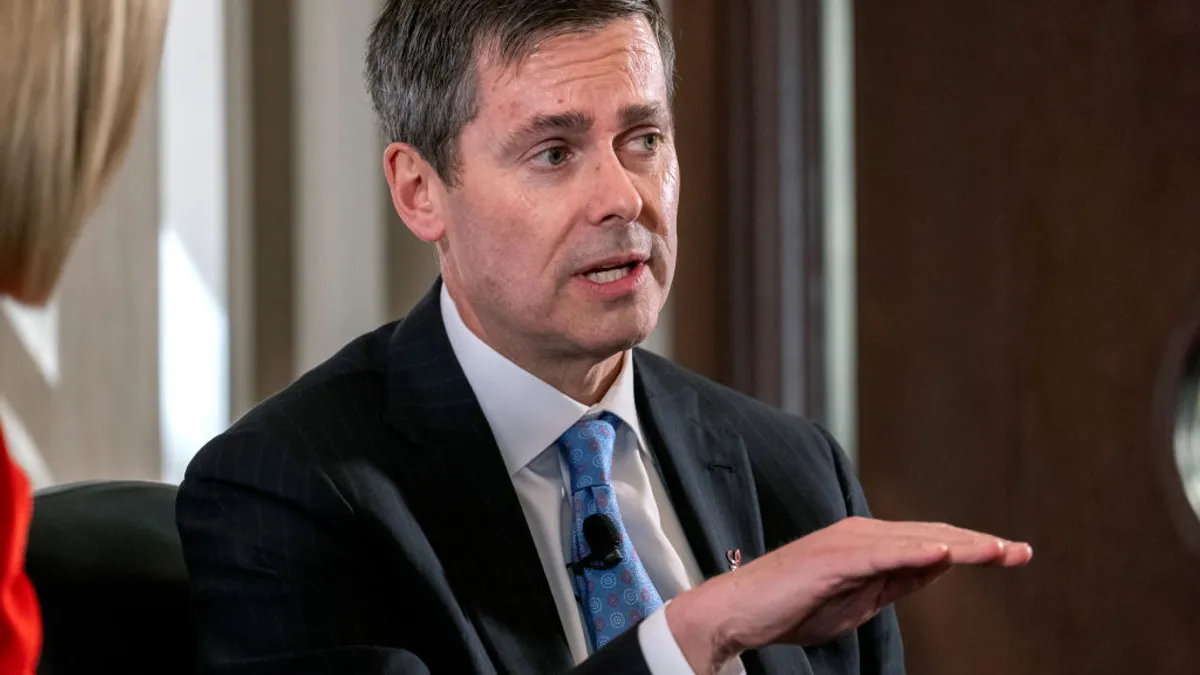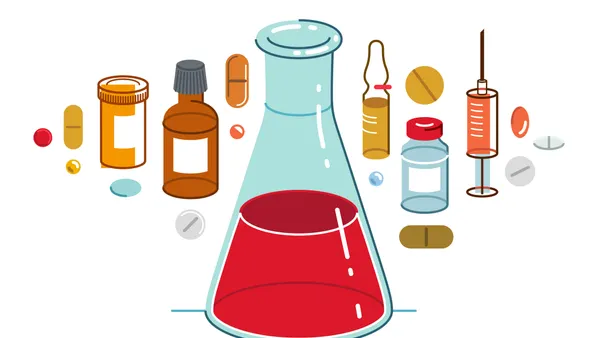After years of stalled efforts, Senate Democrats are inching closer to passing long-sought drug pricing reforms they say strike a balance between cultivating drug innovation and decreasing patient out-of-pocket costs.

The legislation, which is a slimmed-down version of provisions from the Build Back Better Act that would allow Medicare to negotiate prices for some prescription drugs, is expected to come to a vote ahead of Congress’ Aug. 5 recess.
Democrats seem confident the bill will succeed despite setbacks with similar legislation in the past. They plan to use the process of reconciliation, which expedites the passage of budget-related matters with simple majority support on a party-line vote.
“Fortunately, at this point, Mitch McConnell is not the only one in the driver's seat,” Sen. Ron Wyden (D-Ore.), chair of the Senate Finance Committee, said during a July 20 virtual panel on the bill hosted by Stat News.
Right now, Democrats are awaiting word from the Senate parliamentarian on whether the bill complies with the rules of reconciliation, which mandate that all portions of the legislation impact the budget in some way. The parliamentarian could ax any measures that don’t comply with those requirements.
Here are a few of the major provisions in the bill and their potential impacts on the pharmaceutical industry, should they make it through the parliamentarian’s review, as explained by industry executives and regulatory experts.
Key measures:
- Requires Medicare to negotiate prices on an increasing number of drugs per year. Starting in 2026, HHS would negotiate pricing for 10 drugs, then 15 in 2029 and 20 every year after that.
- Exempts small biotech drugs from negotiations until 2029, as well as orphan drugs and low-spend drugs permanently.
- Mandates pharmaceutical companies pay a government rebate if they raise prices higher than inflationary increases.
- Caps out-of-pocket costs for patients at $2,000 a year, starting in 2024.
Notably not included:
- $35 monthly cap on insulin costs for Medicare patients.
- Limits on drug launch prices.
Innovation impact
On earnings calls last week, executives from across the pharmaceutical industry largely criticized the legislation, arguing that it will affect the industry's ability to invest in R&D and develop new medicines.
“Our overall view remains that there are good and bad elements to the package. Clearly, Part D reform is needed,” Novartis CEO Vas Narasimhan said, noting support for the cap on patient out-of-pocket costs but suggesting that other “onerous elements” of the legislation could have “detrimental effects to the long-term outlook for the industry, particularly the negotiation elements.”
The sentiment was echoed by Johnson & Johnson CEO Joaquin Duato, who contended that, if enacted, the legislation would likely have a “chilling effect on innovation that will be translated into less new medicines for patients.”
A nonpartisan analysis of the legislation by the Congressional Budget Office suggests the bill could impact the availability of new therapies, predicting it will stop two drugs from coming to market between 2023-2032, around five more over the subsequent decade and about eight in the decade after that.
“We're giving the industry a huge amount of time to realize their returns. And on top of that, we've created safe harbors for biosimilars, which will breed more competition for small startup ventures."

Richard Frank
Director of the USC-Brookings Schaeffer Initiative on Health Policy
But experts who spoke at the June 20 Stat virtual panel argued that these numbers don’t necessarily translate into a decrease in drug innovation.
“The vast majority of products that are approved in the U.S. are not breakthroughs. They're not cures, and so those last drugs aren't necessarily ones that will impact real people's lives in any way,” said Rena Conti, an associate professor at Boston University’s Department of Markets, Public Policy and Law.
Richard Frank, director of the USC-Brookings Schaeffer Initiative on Health Policy also reasoned that the bill’s exemptions for certain biotech developers and drug classes allow for innovation where it’s most needed.
“We're giving the industry a huge amount of time to realize their returns. And on top of that, we've created safe harbors for biosimilars, which will breed more competition for small startup ventures, which is where a huge portion of the innovation is coming from today,” Frank said.
Launch prices
Experts on the panel did suggest that the bill could lead drug developers to raise launch prices for medications, at least in the short term. The thought is that because companies will be unable to increase the price of drugs faster than inflation, they may initially set the list prices higher when drugs first enter the market to account for limited future returns.
Stacie B. Dusetzina, an associate professor of health policy and associate professor of cancer research at Vanderbilt University School of Medicine, pointed out that specialty drugs are among the most likely to see higher launch prices if the bill passes because of limited competition.
But both Frank and Conti argue that any initial price increases at launch will inevitably be offset by the inflationary rebate. “How we administer the inflation rebate could actually be used going forward to sort of attenuate a little bit of the tendency to launch at very high prices,” Frank said.
The panelists also said launch prices could be subject to future legislation.
“If we see that the response is to dramatically inflate prices of new drugs, then I think we have to have a conversation about whether that is a reasonable thing for companies to be able to do. Or do we broaden the scope of negotiations?” Dusetzina said.













